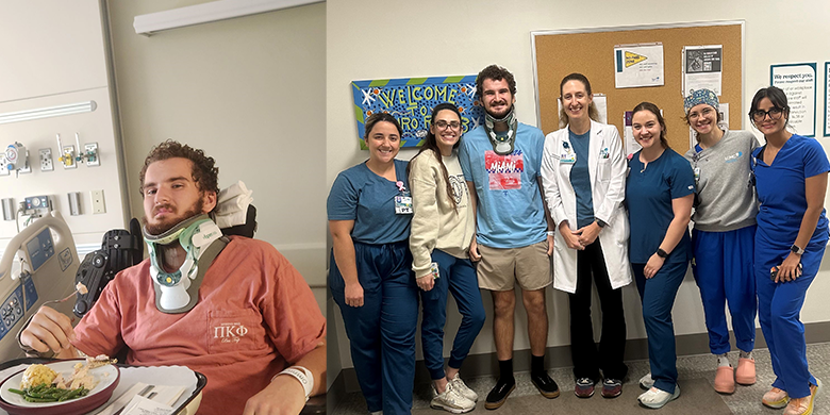When to see a urologist for men and what to expect
- Category: Urology, Men's Health
- Posted on:

Your urinary tract may not be high on your list of conversation topics. But perhaps it should be—with your doctor, at least.
Urology-related symptoms and conditions, which include sexual health, are among the most common health issues that men face. If you’re experiencing a men’s urology issue, you don’t have to go it alone.
Learn more about urologists and when you should consider making an appointment with one.
What is a urologist?
A urologist is a doctor who specializes in conditions related to the urinary tract and reproductive system. Basically, anything in the pelvic region that affects sexual activity in males or how you urinate. All urologists are also surgeons.
While urologists see everyone, including women and children, they most commonly see men. That’s because as men get into their 40s, they’re more likely to experience urologic health conditions.
You may make an appointment directly with a urologist, or your primary care provider can refer you to a urologist if needed.
What to expect during a male urology exam
When you see a urologist, you can expect to answer questions about your health in general and any specific problems you’ve been having. Your urologist may order additional tests, such as a urine test, blood test, or imaging scan. The results of these tests can help diagnose your condition. You may also receive a prostate cancer screening or testicular cancer screening.
After diagnosis (if applicable), you’ll learn about possible treatment options and schedule any follow-up visits.
When to see a urologist
If you’re among the millions of American men who don’t get an annual checkup, that’s a good place to start. Your primary care provider can take an informed look at your overall health. If you’re experiencing symptoms related to your urologic health or sexual health, they may refer you to urology.
There are several reasons why you may need specialized urology care:
Frequent urination
Many men develop an enlarged prostate (also called benign prostatic hyperplasia) starting in their 40s. This condition can lead to more frequent urination. It can also make it harder to urinate or fully empty the bladder.
Urinary incontinence
It’s not uncommon for older men to experience some type of urinary incontinence, causing loss of bladder control or leakage. An enlarged prostate or overactive bladder are common causes of urinary incontinence in men.
Painful urination
Though urinary tract infections aren’t as common in men as in women, they do still happen. Bacteria can make their way into the urinary tract, causing fever, an intense urge to urinate, and pain or burning while urinating.
Bloody urine
If your urine is bloody or cloudy, it’s always a good idea to check with your doctor. It may be a sign of a kidney stone, prostate cancer, or bladder cancer.
Kidney stones
More than half a million American men visit the emergency room each year because of pain from kidney stones. Men are slightly more likely than women to develop kidney stones, which can cause symptoms, such as intense pain, digestive issues, and bloody urine.
Erectile dysfunction
Many men are concerned about erectile dysfunction, and millions experience it to some extent. You should talk to a medical provider if you have trouble getting or keeping an erection, as it can be linked to serious health issues, including heart or blood flow conditions.
Ejaculation problems
For any issues related to ejaculation—including premature ejaculation, delayed ejaculation, or not being able to ejaculate—you should call a urologist. They can diagnose any underlying issues and suggest treatment.
Low sex drive
One cause of low sex drive is low testosterone levels, which can lead to fatigue, irritability, reduced muscle mass, depression, and erectile dysfunction. A urologist can help determine whether low testosterone is impacting your life and provide needed treatment.
Find a urologist near you
At LCMC Health, our compassionate krewe has experience treating a wide variety of urologic conditions. Along with the conditions and symptoms outlined above, a urologist can also help with male infertility or permanent birth control through a vasectomy.
We know it’s not always easy to talk about issues related to the urinary tract. But we’re here so that you can feel and function at your best. Meet our New Orleans urologists and schedule a visit today.
